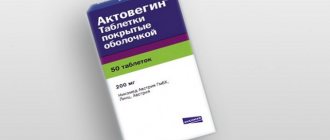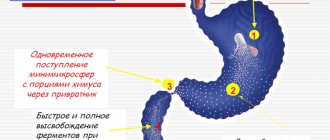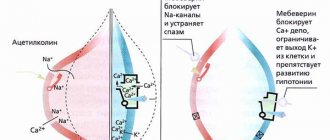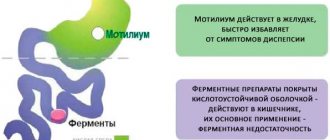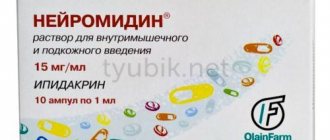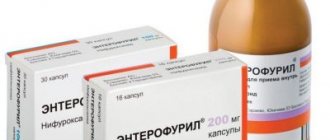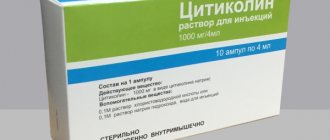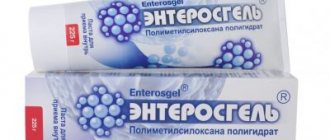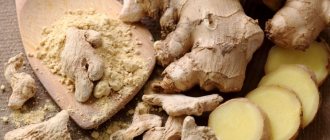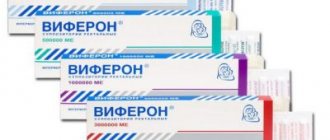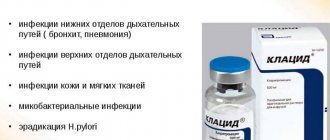Lactofiltrum is a combined action drug that is used to normalize intestinal microflora and strengthen the body. The composition contains sorbene and a prebiotic. The first helps cleanse the body of harmful substances, and the second is responsible for the spread of beneficial bacteria in the body.
How to take Lactofiltrum
The medicine is intended for internal use an hour before meals and other medications. If necessary, the tablet can be crushed. You need to drink enough liquid.
The permissible dose depends on the patient’s age:
- 1-3 years – ½ tablet;
- 3-7 years – 1 tablet;
- 8-12 years – up to 2 tablets;
- From 12 years – up to 3 tablets.
Regardless of age, the medicine should be taken three times a day.
The duration of the treatment course is on average 15-20 days. If you need to extend the course of treatment or repeat it after a while, then before doing so you should definitely consult a specialist. Only he can determine the possibility of further admission.
Cost of the drug and its main analogues, average in pharmacies of the Russian Federation
The average price of Lactofiltrum in Russia is 290 rubles for 30 tablets of 500 mg. As a replacement, you can choose an analogue from different price segments. Data on average prices for analogues are presented in the table:
| Analogue | Average price (in rubles) |
| Polyfan (powder) | 90 |
| Polyphepan | 100 |
| Diosmectite (suspension) | 170 |
| Neosmectin (powder) | 150 |
| Smecta | 170 |
| Entegnin | 180 |
| Filtrum-STI | 97 |
| Enterosgel (paste) | 490 |
| Polysorb MP (3 g) | 47 |
| Enterumin | 300 |
Contraindications and adverse reactions
The drug should not be taken if:
- intestinal obstruction;
- increased susceptibility to constituent substances;
- hemorrhage in the gastrointestinal tract;
- galactosemia.
It should be taken with great caution in case of intestinal atony and exacerbation of stomach ulcers. The effect of the drug on the condition of a pregnant woman and her unborn child has not been fully studied.
After administration, negative reactions may occur:
- accumulation of gases in the stomach;
- stomach upset;
- allergy.
Improper use of the drug can lead to an overdose, which is manifested by pain in the abdomen or constipation. If you experience such symptoms, you should stop taking it immediately.
Analogs
Enterosgel is a safe, universal in pharmacological properties and action, and a well-proven sorbent. However, cost or allergies to the components of the drug may force the patient to look for a cheaper but effective analogue.
The same pharmacological group with Enterosgel includes: Activated carbon, Diosmectite, Lactofiltrum, Lignosorb, Carbosorb, Microcel, Sorbex, Neosmectin, Polysorb MP, Polyphepan, Smecta, Filtrum-STI, Entegnin, Enterodes, Ultra-adsorb, Enterosorb, Enterumin, Enterosorbent SUMS -1.
Polysorb MP is the most common replacement for Enterosgel. It also adsorbs metabolic products and toxic substances, and also increases the ability to restore tissue. It is based on silicon dioxide. Polysorb, like Enterosgel, does not injure the mucous membrane of the digestive tract. Unlike Enterosgel, Polysorb is available only in powder form, which is used for external treatment of pustular skin diseases and wounds, as well as for preparing a suspension for oral administration. Its only side effect may be constipation. It is also contraindicated in patients with acute inflammatory processes in the gastrointestinal tract. In this case, Enterosgel can be used as prescribed by a doctor.
Remember that analogues may have similar properties and effects. But they have their own indications for use, daily dosage, and list of adverse reactions. That is why only a doctor can prescribe or replace one drug with another.
How to take Lactofiltrum for weight loss
Taking the drug helps a little to cope with excess weight. You shouldn’t expect miraculous results, but a couple of extra pounds will definitely disappear. The weight lost will be nothing more than harmful substances accumulated in the body, which will be eliminated from the body as a result of the effects of the medicine.
The fat deposits will remain in place; the product will not have any effect on them. If taking the drug is supported by proper and healthy nutrition, as well as an active lifestyle, then this problem can be successfully dealt with. But you should not overdo it with physical activity; the amount should be kept to a minimum, otherwise there is a possibility of discomfort in the intestines.
Using the product allows you to normalize stool and improve the functioning of the stomach. All this together has a positive effect on the state of the intestinal microflora. If the main purpose of use is to lose weight, then the course of administration is as follows: for 14 days, take 3 tablets three times a day. If a person suffers from diabetes mellitus and experiences frequent constipation, then the use of the product should be discontinued.
Enterosgel and alcohol
The active ingredient of Enterosgel - polymethylsiloxane polyhydrate - effectively binds alcohol and its breakdown products located in the gastrointestinal tract, and also helps to reduce their concentration in the blood.
Taking the gel protects the liver and helps it recover quickly after alcohol poisoning.
For a hangover, to speed up the removal of alcohol from the body, take 3-4 tbsp. spoons of gel/paste immediately after drinking alcohol and the same dose in the morning.
To avoid a hangover, you should drink:
- 15 g after drinking alcohol;
- 15 g in the morning;
- 7.5 g per day (if hangover symptoms have not been completely eliminated).
How to take Lactofiltrum for acne
The medicine has an enterosorbing and binding effect. This is not directly related to acne treatment. But if the cause of acne is problems with the intestines, the product can have a positive effect on the condition of the skin by removing harmful and toxic substances from the body. This will help to achieve a significant reduction in skin rashes.
It is worth saying that this is not the only effect of taking it, but only an additional one. The drug can be safely included as part of a complex treatment. If the appearance of rashes is associated with changes in hormonal levels, then there will be no result from using Lactofiltrum. Even if acne is caused by intestinal dysfunction, you should not rely only on this drug. The effect can only be achieved when taken with other medications and skin care products.
Description of the drug
Enterosgel is an enterosorbent based on organic silicon. The active substance is polymethylsiloxane polyhydrate. And this is the essence of a molecular sponge that is capable of absorbing toxic metabolic products, that is, adsorption occurs selectively. Enterosgel binds and removes from the body endogenous and exogenous toxic substances of various natures, including bacteria and bacterial toxins, antigens, food allergens, medications, poisons, heavy metal salts, and alcohol. In addition, the drug is able to absorb some of the metabolic products: excess urea, bilirubin, lipid complexes, cholesterol. Moreover, polymethylsiloxane polyhydrate is not absorbed into the systemic bloodstream and works only in the intestinal lumen. It does not undergo chemical or metabolic transformations and is excreted with the substances absorbed into it 12 hours after ingestion. This means that Enterosgel is harmless and non-toxic, and does not affect the absorption of vitamins and microelements.
Enterosgel is used for vomiting
Enterosgel has enterosorbing, antidiarrheal, enveloping, detoxification, and regenerating properties. The drug improves the functional state of the intestines, kidneys, liver, normalizes the functions of the immune and hematopoietic systems.
All this reduces the treatment time for most diseases.
Analogues from the group of sorbents for the intestines and skin
Sorbents are preparations that have the ability to selectively absorb gases, vapors or solids. They are used in medicine due to their ability to remove harmful substances from the digestive tract. Analogs of Lactofiltrum from this group of drugs include: Enterosorb, Enterosgel, Diosmectit, Neosmectin, Polysorb MP, Enterumin, Microcel and Smecta.
Smecta
Each package of Smecta contains 3 g of dioctahedral smectite, as well as additional substances for better absorption of the medicinal substance. Available in the form of a white powder with a vanilla scent. For children, the contents of one sachet are dissolved in 50 ml of water and taken throughout the day. Adults take 1 sachet 3 times a day, after dissolving in ½ glass of water. It is recommended to take a course of 4-5 days.
Smecta for children
Smecta removes bacteria and toxins from the body, envelops the digestive tract, thus protecting against irritation by hydrochloric acid, exotoxins of microorganisms, bile acids and other negative influences. Prescribed for acute and chronic inflammatory diseases of the intestinal tract in the presence of diarrhea syndrome.
Side effects of Smecta (constipation) are observed quite rarely. The drug is not used in the presence of intestinal obstruction. Can be used during pregnancy and lactation; cases of overdose have not been described.
Enterosgel
The active component of the product is an inert silicon-organic compound. The drug is presented in the form of a powder or paste. The mechanism of action is based on the adsorption of toxic elements. Improves the functioning of the liver and kidneys, removes products of metabolic processes, significantly improves blood and urine counts.
In addition, the drug envelops the intestinal mucous membranes, which helps protect against erosive processes.
Reasons for appointment are:
- enteritis of viral and bacterial nature;
- acute and chronic poisoning of any nature;
- bacterial diseases of the kidneys, bladder, vagina, oral cavity;
- diathesis;
- dermatitis;
- urological infections;
- purulent, septic processes in surgery;
- carrying out detoxification therapy in the treatment of oncological pathologies;
- prevention of toxic effects.
Enterosgel dosage regimen
The limitation for use is acute intestinal obstruction. Pregnancy and lactation are not contraindications. The duration of treatment is one to two weeks, the daily dose is 45 g.
Diosmectite
Diosmectite is an antidiarrheal drug that has a protective effect on the mucous membrane of the digestive tract (especially the small and large intestines). Improves the quality of the mucous barrier, stabilizes its components and protects the intestines from H+ ions and bacterial flora.
Prescribed for the treatment of allergic, nutritional, drug-induced and infectious diarrhea, as well as inflammation of the intestines, stomach and peptic ulcer. Can be used as a symptomatic treatment of heartburn, flatulence and abdominal discomfort. It is not recommended to combine Diosmectite with other medications.
Action of Diosmectite
The course of therapy is on average three days (three sachets per day, pre-dissolved in 100 ml of water). Constipation and allergic reactions may develop.
Polysorb MP
A sorption drug that binds to exogenous and endogenous toxins and removes them from the body. By creating osmotic gradients, it promotes the transport of toxic products from the blood, interstitium and lymph, which are subsequently eliminated by the gastrointestinal tract.
The purpose is indicated for:
- hepatitis A and B;
- salmonellosis;
- yersiniosis;
- food toxic infections.
Scheme of action of Polysorb
It is not used in children under one year of age, patients with gastric ulcers in the acute stage and with symptoms of intestinal obstruction. Take 60 minutes before meals, dissolving the contents of the sachet in water, the daily dose is 12 g. The drug should not be prescribed simultaneously with acetylsalicylic acid to avoid platelet disaggregation.
Enterosorb
This is a widely known drug that has an antitoxic effect. The active ingredient is povidone. Take 5 g (a teaspoon of powder) orally, after dissolving in 100 ml of boiled water, you can add sugar or fruit juices for better absorption.
It is used for food toxic infections of various origins, the effect appears 30 minutes after taking the drug.
Enterosorb can cause nausea and vomiting, which disappear quickly. It is not used simultaneously with other drugs, as it inhibits their absorption. At the moment it is not available in most pharmacies in Russia, so it is replaced with Enterodes because it also contains povidone.
Microcel
Microcel is a drug belonging to the group of adsorbent intestinal agents. The active ingredient is microcrystalline cellulose. Use a tablespoon 3 times a day 1-1.5 hours before meals. Pour in 100 ml of water. The duration of the course of treatment is two weeks.
For acute intestinal infections, it is advisable to increase the dosage to 1 g per kg of weight. If the patient has a tendency to constipation, it is necessary to use the drug under the strict supervision of the attending physician and discontinue it at the first signs of intestinal dysfunction.
Neosmectin
Neosmectin is an analogue of Smecta, which also has an antidiarrheal effect. Used for infectious and toxic diseases of the digestive tract. By creating polyvalent bonds with mucus glycoproteins, Neosmectin increases its quantity, exhibits gastroprotective activity, and reduces the negative effects of hydrochloric acid, bile acids, microorganisms and their exo- and endotoxins.
Indications are the symptomatic treatment of mesogastric and epigastric pain, prolonged diarrhea and other manifestations of enteroviral infections. Not used in newborns (up to 1 month) and in cases of intestinal obstruction. The maximum daily dose is three sachets (0.19 bread units). The following side effects may occur: constipation, vomiting, flatulence, urticaria, Quincke's edema.
Enterumin
A preparation based on aluminum oxide coated with carbon has been developed. Removes toxins of various origins from the gastrointestinal tract. Effective against intoxication with medium and high molecular weight toxins. Prescribed for:
- burn disease;
- liver failure;
- hepatitis;
- enteroinfections;
- purulent-septic diseases;
- allergic reactions.
Contraindicated in the presence of hypersensitivity and bleeding in the intestines. Prescribed 4 packets two to three times a day (the contents are moistened with water and washed down). The daily dose is up to 75 g. Enterumin is capable of turning stool black and influencing the speed of reactions when driving vehicles and complex mechanisms. There is no evidence of drug overdose.
